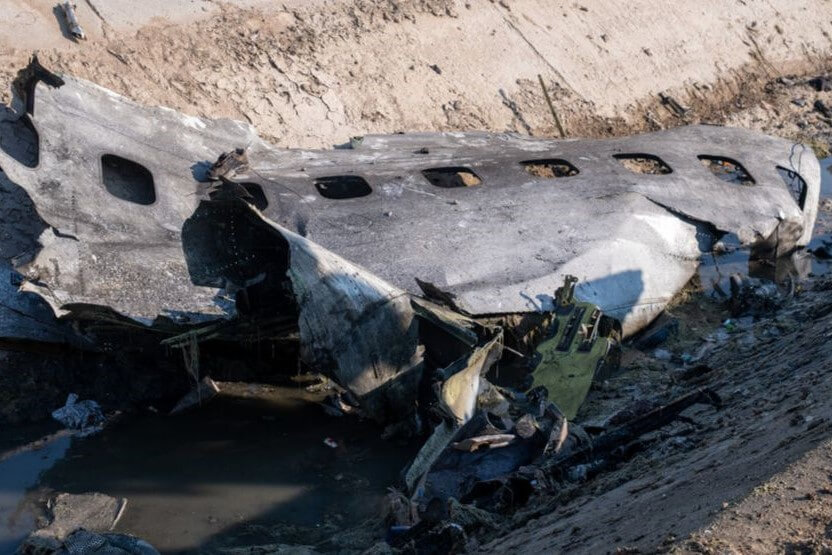New black box information regarding the Ukrainian International Airlines (UIA) flight PS-752 downed by Iranian missiles on January 8, 2020, revealed that members of the cabin crew were still alive after the initial hit. Canada claimed that the report merely confirms what they already knew and demanded Iran to answer more important questions.
On August 23, 2020, Iran’s Civil Aviation Authority released a preliminary report stating that both flight and cockpit recorders were functional after the first missile impacted the aircraft. In fact, all aircraft systems were functioning as intended until the initial explosion.
Both recorders continued operating for 19 seconds after the initial missile impact before abruptly cutting off. The second explosion reportedly happened 25 seconds after the first, rendering the black box information useless in providing a holistic assessment of the situation.
Marc Garneau, Canada’s Minister of Transport and François-Philippe Champagne, Minister of Foreign affairs, released a joint statement insisting that Iran’s preliminary report “only provides limited and selected information regarding this tragic event.”
The Canadian officials also said that “The report only mentions what transpired after the first missile strike but not the second and only confirms information that we already know.” They also voiced expectations towards Iran to focus on answering why the air space was open and why missiles were launched at the Ukrainian Boeing 737 in the first place.
“These are the questions that Canada, Canadians and most importantly, the families of the innocent victims need answered,” the statement reads further. Finally, the Canadian officials call out Iran to conduct a “thorough and transparent investigation,” citing Iran’s commitment to ICAO standards set in Annex 13.
The full contents of the recordings were undisclosed by Iranian officials. Still, according to Aviation Herald, one pilot could be heard giving instructions to his colleague on how to navigate the aircraft after the first explosion. Post-detonation sounds further revealed that all three crew members inside the cockpit were uninjured and fit to operate the damaged aircraft.
Among the 176 people who died during the crash, 82 were Iranians, while 63 were Canadians who were flying back home via Ukraine. The rest of the deceased were Ukrainian, Swedish and British nationals.
The Boeing 737-800 (registration UR-PSR) itself belonged to Ukraine International Airlines. Ukrainian Foreign Minister Dmytro Kuleba was determined to see Iran take full responsibility for the aircraft downing, claiming “We will achieve justice, no matter how much time and effort it costs” in a statement he made on July 30, 2020.
On January 8, 2020, Ukrainian International Airlines Boeing 737 crashed shortly after takeoff from Tehran International Airport, Iran, killing the 176 people on board. After a few days of denial, the Iranian authorities eventually admitted that the aircraft was shot down. An operator of the Iranian Revolutionary Guards (IRGC), stationed in Bid Kaneh, allegedly mistook the commercial flight for a cruise missile and fired two missiles from a Tor-M1 surface-to-air system.

